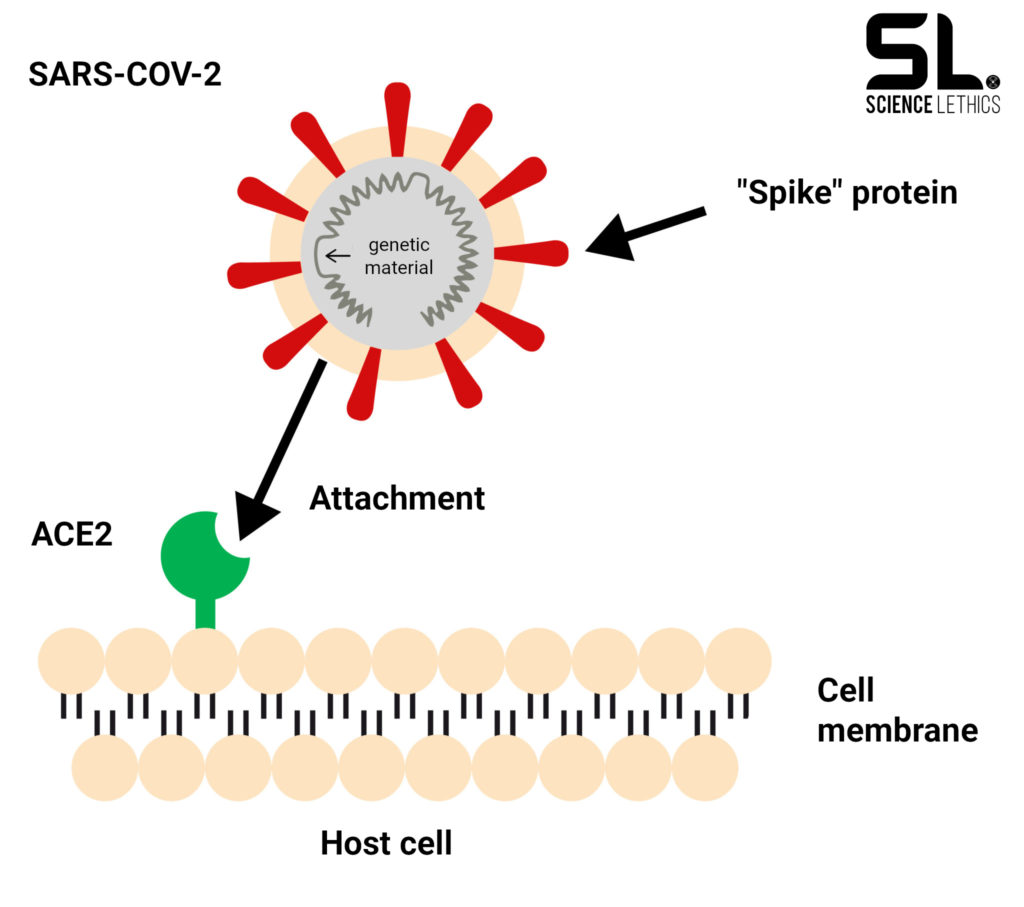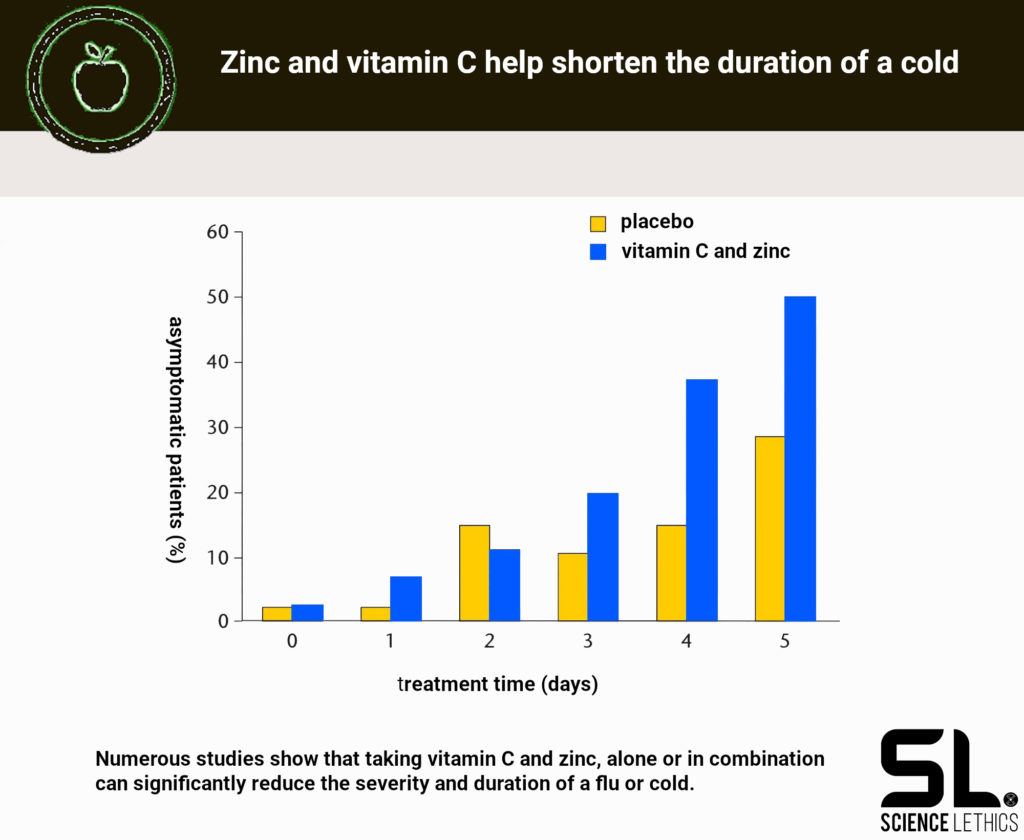The measures to contain the coronavirus’ have us firmly in their grip and the concern of infection is likely on the minds of many of us. Researchers worldwide have been working furiously not only to find a vaccine so that we can regain our freedoms through immunity, but also to find preventative measures and cures so that the disease can be prevented from breaking out in the first place or treated in the best possible way. Today we clarify what science has to say so far about the influence of different supplements on COVID-19.
First of all, of course, all the remedies presented here being no substitute for medication, medical instructions or the protective measures issued by the government. Anyone who lulls himself into too much security on the basis of dietary supplements and thus disregards distancing orders or other instructions risks not only an avoidable infection, but also a fine for violation of the Infection Protection Laws. The data listed here is for additional information only and does not constitute a recommendation for action.
Vitamins and minerals
Potassium and COVID-19
Let’s start our list of supplements having a possible impact on COVID-19 with a mineral that probably many would not have expected at this point. Potassium does not protect against lung disease, nor does it significantly strengthen the immune system. However, in a study of 175 patients, Chinese doctors observed that 39 percent of them had low blood potassium levels and 22 percent even suffered from severe potassium deficiency [1]. Taking about three grams of the electrolyte helped them to compensate for this deficiency.
The reason for this phenomenon is probably that SARS-CoV-2 enters and infects cells via angiotensin-converting enzyme 2 (ACE2). Normally, it helps regulate blood pressure by controlling the sodium-potassium balance. As the virus inactivates this enzyme, it increases urinary excretion of potassium and consequently decreases blood levels. Decreased potassium levels can lead to heart problems, which are commonly observed in COVID-19. However, people who take ACE inhibitors as medication due to problems with blood pressure should immediately talk to their doctor about this in case of infection with the pathogen and also mention this in case of hospitalization.

Vitamin C and COVID-19
This vitamin is important for the function of leukocytes in the human immune system and is also important for the absorption of iron in the small intestine. An iron deficiency can additionally increase the risk of infection. The German Society for Nutrition states the daily requirement of vitamin C for adult men as 110 milligrams per day and for adult women as 95 milligrams per day [2]. For smokers, this requirement increases to 155 and 135 milligrams, respectively, because the antioxidant micronutrient is needed to neutralize the additional oxidative stress caused by cigarette smoke. This amount can usually be easily covered by a balanced diet.
The additional intake of vitamin C has been shown to reduce the duration and severity of a cold or flu by an average of eight to 14 percent [3]. The review included studies with doses above 200 milligrams and up to 8000 milligrams per day. However, positive effects were only shown when vitamin C was used from the time of symptom onset. A daily, prophylactic intake showed no positive effects.
The situation is different for athletes who are exposed to an extreme level of physical activity. Some studies have shown, using marathon and ski runners, that daily intake of 200 to 2000 milligrams of vitamin C per day in combination with a high level of physical stress reduces the incidence of colds and flu [3]. This was not the case in inactive individuals and those with lower levels of physical stress. In addition, most athletes worldwide are not currently able to muster extreme levels of physical activity.
Specific to coronavirus, there is no evidence that taking vitamin C supplements protects against COVID-19. However, it might help patients who need to be ventilated because of the disease. A review of several studies shows that an amount between 1000 and 6000 milligrams per day can reduce the duration of ventilation by about 25 percent if a total of more than ten hours on such a device is required [4]. Currently, tests are underway to determine whether intravenous administration of vitamin C might prove helpful in COVID-19 patients with pneumonia.
Vitamin D and COVID-19
It is well known that vitamin D is an important cofactor for immune cell production and function. Therefore, deficiency can lead to impaired immune function [5]. Japanese children given 1200 i.U. of vitamin D per day were 40% less likely to get influenza in winter [6]. Similar effects were demonstrated in Mongolian children given 300 i.U. [7]. Older women who received 800 i.U. for three years were three times less likely to develop influenza. Women from this study who received 2000 i.U. in the third year were even 26 times less affected, which means that vitamin D helps to prevent influenza [8].
Specifically related to coronavirus, there is no evidence that taking vitamin D supplements protects against COVID-19. However, achieving adequate levels with the help of supplements and sunlight will generally help prevent respiratory infections and will also be beneficial rather than detrimental to overall health.
Zinc and COVID-19
Zinc supplements to combat COVID-19 are particularly useful for individuals with a deficiency of this mineral, which is especially prevalent in the elderly and vegetarians. The reason for this is that the elderly generally have decreased zinc absorption, and a plant-based diet contains less zinc on the one hand, and on the other hand, increased intake of phytates also inhibits zinc absorption [9, 10]. Here, chronic intake from dietary supplements could be protective against influenza and colds.
However, in individuals without zinc deficiency, long-term intake does not appear to be protective against respiratory illness. However, a meta-analysis of15 studies with a total of 1360 participants suggests that zinc intake is associated with reduced duration and severity of colds when used in high doses within 24 hours of symptom onset [11]. We are talking about around 80 to 90 milligrams daily [12]. To what extent this applies specifically to COVID-19 is not known.

Other supplements and their influence on COVID-19
Astragalus
Some websites and manufacturers of this herb tout astragalus for preventing COVID-19. It is used in traditional Chinese medicine to strengthen the immune system and treat colds, among other uses. Laboratory experiments on cells and animals show that special constituents of the root increase the production of white blood cells, which are important for immune defense, especially T cells and macrophages [13]. Also, an antiviral effect was found to exist on some already known coronaviruses [14]. In China, astragalus alone or in combination with other herbs is thought to help prevent COVID-19 as a supplement [15]. However, so far there is no clinical evidence for this in humans!
Echinacea
A yet-to-be-released cell study claims to have shown that a special extract of this herb inhibits specific coronaviruses, including (HCoV) 229E, MERS and SARS CoVs [16]. Researchers also hypothesize that the branded crude will have a similar effect on SARS-CoV-2. However, this was not tested separately. The study was also funded by the manufacturer and conducted in part by company employees. Clinical studies show a moderate effect of echinacea on other forms of respiratory viral infections, although results to date have been mixed. Therefore, reliable protection against COVID-19 cannot be concluded.
Elderberry extract
Laboratory experiments have shown that elderberry extract can inhibit the replication of human influenza viruses, including influenza A and B and H1N1 [17]. Similar to zinc and vitamin C, preliminary results also show that taking elderberry extract at the onset of symptoms could reduce the severity and duration of influenza. With respect to coronavirus in particular, there is no evidence that taking these supplements protects against COVID-19.
However, concerns have been raised that elderberry extract may trigger an immune system overreaction in COVID-19 patients [18]. This condition can cause significant damage to the cells of the body, especially in the lungs where SARS-CoV-2 is clustered and proliferates.
Quercetin
Quercetin and its metabolites have been shown in cell and animal studies to inhibit a number of viruses, including SARS-CoV, which is closely related to the COVID-19 pathogen. This substance is thought to inhibit the viruses as they enter cells. A clinical trial of the efficacy of these supplements on COVID-19 is planned and currently underway. This will use an extract from the Swiss manufacturer Quercegen Pharmaceuticals, the exact specification of which is not yet known. To date, no recommendation can be made regarding quercetin in terms of prevention. Natural sources include onions, grapes and ginkgo.
Which supplements most probably don`t help against COVID-19
On the Internet you can find a lot of recommendations about supplements that are supposed to have an effect against the new coronavirus. Without going into detail here, the following products turned out to be probably ineffective, according to the American consumer platform ConsumerLab.com:
Garlic
Coconut oil
Apple cider vinegar
Lysine
N-acetyl-L-cysteine (ACC-Akut)
Melatonin
Olive leaf extract
Cannabidiol
Colloidal silver
Conclusion and summary
Even though many supplements are touted as true cure-alls in the fight against COVID-19, many claims turn out to be scientifically untenable. However, we must also admit that the situation is so
acute that scientific data simply cannot be generated as fast as the demand of products on the market increases. Therefore, conjectures based on effects on the immune system or other viruses are quite legitimate. It will be weeks and months before they are confirmed for SARS-CoV-2 as well.
Nevertheless, there is no harm in taking care of one’s general health and well-being. In addition to a balanced diet, physical activity and adequate sleep, it is important to avoid deficiencies of vitamin C, zinc, potassium and vitamin D. However, taking higher amounts seems to be useful only in case of illness to mitigate the severity and duration of symptoms. Especially with regard to vitamin D as well as physical activity, we can recommend sufficient outdoor exercise right now. Of course, only with a sufficient safety distance.
Possibly the most important tool to support your health?
Do you already know our specially designed COMEBACK FITYEAR 2021 Training Programs? 4 dedicated program guides for beginner, as well as intermediate to advanced trainees, who want to become physical active again – at home or at the gym- after a layoff period. We wrote the COMEBACK FITYEAR 2021 Programs, so you can get back in shape – after a break, especially during those pandemic lockdown times. In the comfort of your own home, your own home gym or a commercial fitness club – we got you covered: from solely bodyweight based exercises to simple workout equipment like dumbbells and resistance bands up to a proper gym setup: this is exactly what you need to get a great and effective workout again, while still being able to progress and build muscle!
We are looking forward to your visit on our website. Click here and learn more now.
READY TO TRAIN LIKE A PRO?
LET’S GET YOUR GAINS BACK. TOGETHER.
_____________________________
Primary Source: ConsumerLab.com: “Natural Remedies and Supplements for Coronavirus (COVID-19)”
References
- Li, Xiaokuni, et al. “Hypokalemia and Clinical Implications in Patients with Coronavirus Disease 2019 (COVID-19).” medRxiv (2020).
- German, Nutrition Society DGE. “New Reference Values for Vitamin C Intake.” Annals of nutrition & metabolism 67.1 (2015): 13.
- Hemilä, Harri, and Elizabeth Chalker. “Vitamin C for preventing and treating the common cold.” Cochrane Database of Systematic Reviews 1 (2013).
- Hemilä, Harri, and Elizabeth Chalker. “Vitamin C may reduce the duration of mechanical ventilation in critically ill patients: a meta-regression analysis.” Journal of Intensive Care 8.1 (2020): 15.
- Prietl, Barbara, et al. “Vitamin D and immune function.” Nutrients5.7 (2013): 2502-2521.
- Urashima, Mitsuyoshi, et al. “Randomized trial of vitamin D supplementation to prevent seasonal influenza A in schoolchildren–.” The American journal of clinical nutrition 91.5 (2010): 1255-1260.
- Camargo, Carlos A., et al. “Randomized trial of vitamin D supplementation and risk of acute respiratory tract infection in Mongolia.” Pediatrics (2012): peds-2011.
- Aloia JF, Li-Ng M. “Re: epidemic influenza and vitamin D.” Epidemiol Infect. (2007):1095-6; author reply 1097-8
- Cabrera, Angel Julio Romero. “Zinc, aging, and immunosenescence: an overview.” Pathobiology of Aging & Age-related Diseases 5.1 (2015): 25592.
- Gibson, Rosalind S., Victor Raboy, and Janet C. King. “Implications of phytate in plant-based foods for iron and zinc bioavailability, setting dietary requirements, and formulating programs and policies.” Nutrition reviews 76.11 (2018): 793-804.
- Singh, Meenu, and Rashmi R. Das. “Zinc for the common cold.” Cochrane Database of Systematic Reviews 6 (2013).
- Hemilä, Harri, et al. “Zinc acetate lozenges may improve the recovery rate of common cold patients: an individual patient data meta-analysis.” Open forum infectious diseases. Vol. 4. No. 2. US: Oxford University Press, 2017
- Block, Keith I., and Mark N. Mead. “Immune system effects of echinacea, ginseng, and astragalus: a review.” Integrative cancer therapies 2.3 (2003): 247-267.
- Zhang, Pengju, et al. “Astragalus polysaccharides inhibit avian infectious bronchitis virus infection by regulating viral replication.” Microbial pathogenesis 114 (2018): 124-128.
- Yang, Yang, et al. “Traditional Chinese medicine in the treatment of patients infected with 2019-new coronavirus (SARS-CoV-2): a review and perspective.” International Journal of Biological Sciences 16.10 (2020): 1708.
- Signer, J., H. R. Jonsdottir, and W. C. Albrich. “In vitro antiviral activity of Echinaforce®, an Echinacea purpurea preparation, against common cold coronavirus 229E and highly pathogenic MERS-CoV and SARS-CoV.” Virology (2020).
- Torabian, Golnoosh, et al. “Anti-influenza activity of elderberry (Sambucus nigra).” Journal of functional foods 54 (2019): 353-360.
- Mehta, Puja, et al. “COVID-19: consider cytokine storm syndromes and immunosuppression.” The Lancet (2020).
